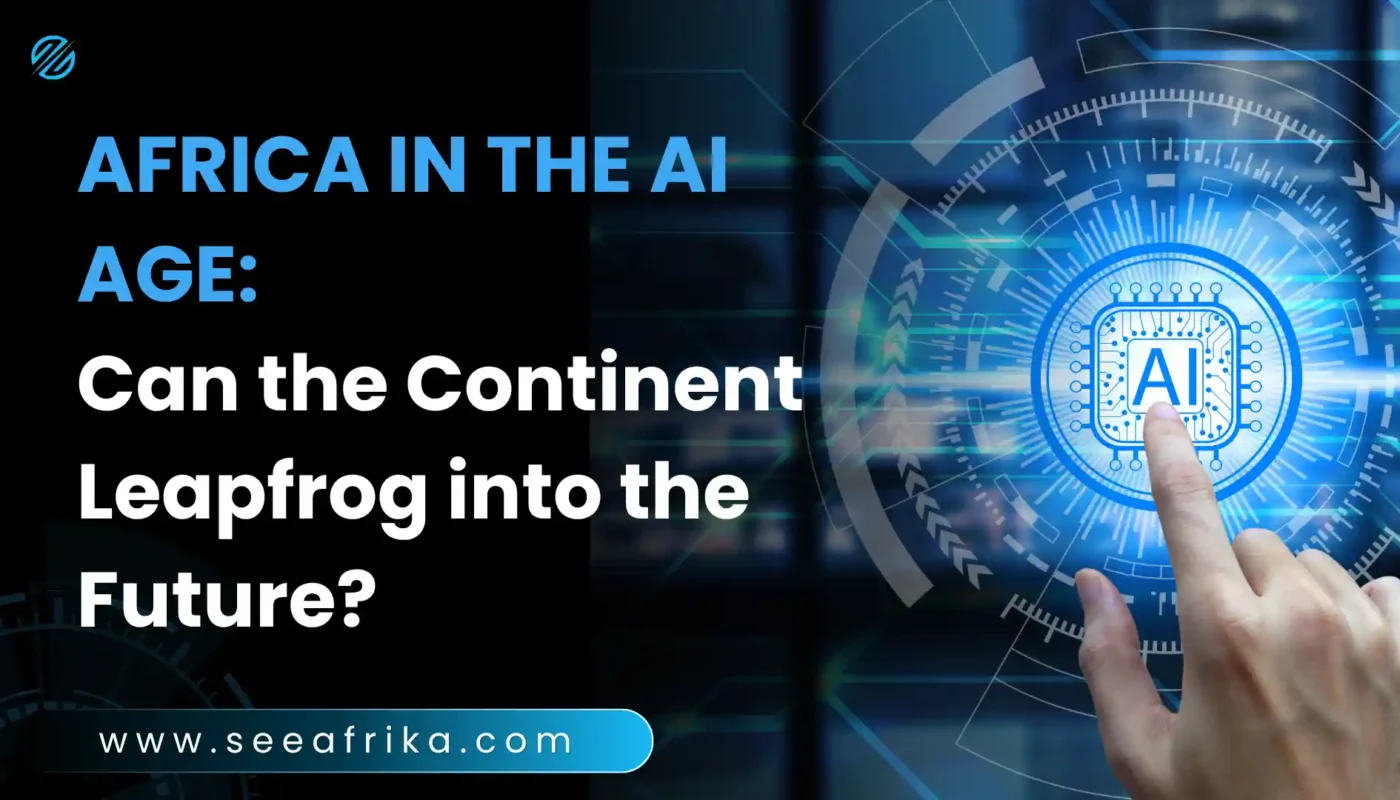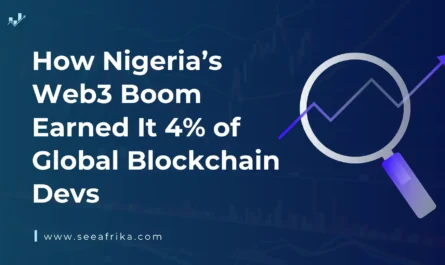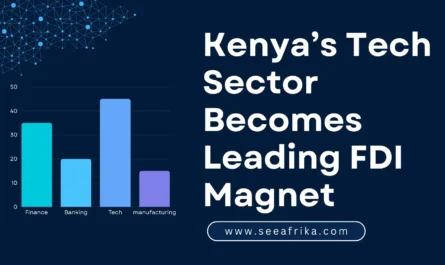Leapfrogging in technology refers to the phenomenon in which developing regions bypass intermediate stages of technological development and leap directly to advanced technologies. For Africa, this concept is more than theoretical; it is a strategic imperative.
As the world rapidly transitions into the AI age, Africa stands at a crossroads: it can either embrace artificial intelligence as a catalyst for development or risk being left behind in the global digital economy.
The AI age presents a transformative opportunity for Africa to accelerate growth, enhance governance, and address long-standing challenges by leveraging cutting-edge technology without the constraints of legacy infrastructure.
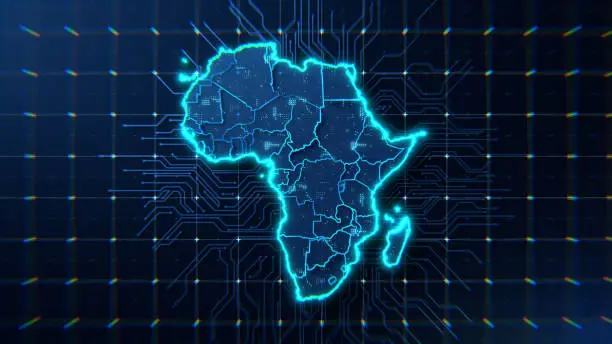
What Is the AI Age and Why Does It Matter Globally?
The AI age, also known as the Intelligence Age, is characterized by the rise of artificial intelligence systems that mimic human cognitive functions such as learning, reasoning, and decision-making. Unlike previous industrial revolutions, this era is characterized by rapid technological advancements that permeate various sectors, including healthcare, finance, agriculture, education, and governance.
Globally, AI is reshaping economies by enhancing productivity, enabling the emergence of new industries, and raising ethical concerns about privacy, job displacement, and equity. The AI age demands a proactive approach to harness its benefits while mitigating risks, making it a defining moment for societies worldwide.
Also read: AI Tools Transforming Classrooms in Africa: A New Era in Education
Why Leapfrogging Is Crucial for Africa
Leapfrogging technologies have historically shaped Africa’s development trajectory. The continent bypassed widespread landline telephony to become a global leader in mobile money, exemplified by services like M-Pesa.
Similarly, edtech innovations have expanded access to quality education despite infrastructural challenges. These examples highlight how Africa can harness emerging technologies to overcome traditional barriers.
Leapfrogging into the AI age is vital because it allows Africa to avoid the pitfalls of outdated systems and directly adopt AI-driven solutions tailored to its unique context. This approach can accelerate economic transformation, improve public services, and enhance competitiveness on the global stage.
Key Opportunities for Africa in the AI Age
Youthful Population and Data Potential
Africa boasts the youngest population globally, with a median age under 20. This demographic dividend presents a vast pool of talent ready to be equipped with AI skills. Moreover, Africa generates vast amounts of data—from mobile transactions to agricultural outputs—that can fuel AI models tailored to local needs.
AI Use Cases Across Sectors
Agriculture: Transforming Farming with AI-Driven Tools
Agriculture remains the backbone of many African economies, employing a significant portion of the population. However, productivity has often been hampered by limited access to mechanization, fragmented supply chains, and unpredictable weather patterns. AI-driven technologies are now revolutionizing this sector by optimizing crop yields, improving soil health monitoring, and enhancing resource allocation.
A standout example is Hello Tractor, often described as the “Uber for tractors”. This Nigerian startup leverages AI, Internet of Things (IoT), and machine learning to connect smallholder farmers—who dominate African agriculture—with tractor owners through a digital platform accessible via mobile and web applications.
Farmers can request tractor services remotely using simple text messages, and AI-powered predictive modeling forecasts demand to optimize tractor distribution and fleet management. This approach ensures tractors are deployed efficiently where and when they are most needed, enabling farmers to plant earlier, cultivate more land, and increase yields.
Also read: Tech Adoption in Kenya: A Transformative Journey
Hello Tractor’s collaboration with partners, including the Nigerian Federal Ministry of Agriculture, John Deere, and IBM, has further enhanced its impact. Their tractors are equipped with telematics devices that collect real-time data used to predict maintenance needs, optimize operations, and even help financial institutions make informed credit decisions for farmers and tractor owners based on reliable usage data. This integration of AI and blockchain technology enables a digital wallet system for the agricultural sector, promoting better financial inclusion and increased access to loans.
The results speak volumes: over 250,000 farmers have benefited, with projections indicating the potential to cultivate 9 million hectares of land, yielding an additional 37 million metric tons of food and creating millions of jobs. Hello Tractor’s model is expanding beyond Nigeria to countries like Kenya, Mozambique, Senegal, and Tanzania, showcasing how AI can help overcome traditional barriers in African agriculture by turning expensive fixed costs into affordable, on-demand services.
Other agtech startups such as Zenvus, TroTro, and ThriveAgric complement this ecosystem by providing AI-powered soil analysis, weather forecasting, and farm management tools, collectively driving Africa toward a more secure and productive food system.
Fintech: Enhancing Financial Inclusion through AI
Africa’s fintech sector has been a global beacon of innovation, largely due to the widespread adoption of mobile money platforms, such as M-Pesa. AI is now amplifying this progress by enhancing credit scoring, improving fraud detection, and delivering personalized financial services, thereby deepening financial inclusion for millions who remain unbanked or underbanked.
Traditional credit scoring models often exclude many Africans due to a lack of formal financial histories. AI algorithms, however, analyze alternative data sources such as mobile phone usage, transaction patterns, and social behavior to assess creditworthiness more accurately. This enables lenders to extend microloans and insurance products to individuals and small businesses previously deemed too risky.
Moreover, AI-driven fraud detection systems monitor transactions in real time, identifying suspicious activities and reducing financial crimes that disproportionately affect emerging markets. These systems use machine learning models trained on vast datasets to detect anomalies and prevent losses.
Fintech startups across Africa are leveraging AI to personalize financial products, automate customer service through chatbots, and optimize payment processing. This not only enhances user experience but also reduces operational costs, making financial services more accessible and affordable.
By building on the continent’s mobile money success, AI-driven fintech solutions are accelerating economic empowerment, enabling entrepreneurship, and fostering inclusive growth.
Also read: African Schools Embrace the AI Revolution
Healthcare: AI-Powered Diagnostics and Predictive Analytics
Healthcare in Africa faces numerous challenges, including limited access to skilled professionals, inadequate infrastructure, and uneven distribution of resources, especially in rural areas. AI is emerging as a transformative force by enabling early disease detection, improving diagnostics, and optimizing resource allocation.
AI-powered diagnostic tools analyze medical images, patient data, and even vocal biomarkers to identify diseases more quickly and accurately than traditional methods. For example, startups like Ubenwa use AI to analyze infant cries to detect birth asphyxia, a leading cause of neonatal mortality, enabling timely intervention.
Predictive analytics models forecast disease outbreaks, patient admission rates, and resource needs, helping healthcare providers and governments allocate limited resources more effectively. AI also supports telemedicine platforms, connecting patients in remote areas with specialists through virtual consultations enhanced by AI-driven decision support.
Pharmaceutical supply chains benefit from AI as well, with companies like mPharma using AI to manage inventory, predict drug demand, and reduce shortages, ensuring essential medicines reach those in need.
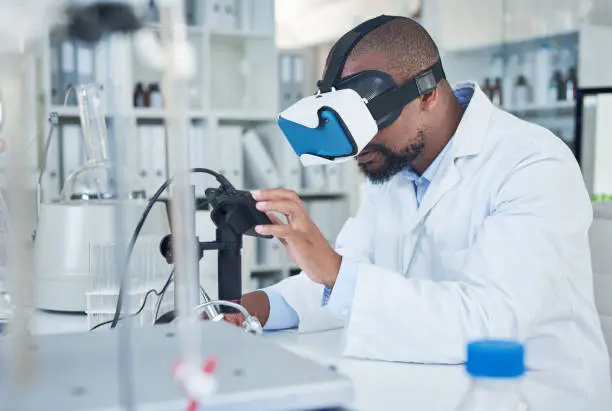
Open Collaboration and Innovation Ecosystems
The rise of platforms like Zindi, Africa’s premier AI competition hub, fosters collaboration among data scientists to solve real-world problems. This open innovation culture accelerates AI adoption and skill development across the continent.
African Success Stories in AI: Pioneering Innovation on the Continent
Africa’s AI landscape is rapidly evolving, driven by visionary startups and platforms that harness artificial intelligence to solve pressing local challenges. Below is an extensive look at some of the continent’s standout success stories, illustrating how AI is being applied innovatively across health, agriculture, fintech, and logistics.
1. Zindi: Africa’s Premier AI Competition Platform
Zindi is a groundbreaking platform that hosts AI competitions focused exclusively on African problems. By bringing together data scientists from across the continent and the diaspora, Zindi fosters a collaborative environment where participants develop innovative AI solutions tailored to Africa’s unique challenges. These competitions encompass a diverse range of sectors, including agriculture, healthcare, financial services, and climate change mitigation.
The platform democratizes access to AI by providing datasets and problem statements sourced from African governments, NGOs, and private sector partners. This approach accelerates AI capacity building by enabling data scientists to gain hands-on experience solving real-world problems. Zindi has become a vibrant community hub, nurturing talent and driving homegrown AI innovation that is both relevant and scalable.
2. Hello Tractor: The “Uber for Tractors”
Hello Tractor is a Nigerian startup revolutionizing African agriculture by using AI to optimize the use of agricultural machinery. Dubbed the “Uber for tractors,” Hello Tractor connects smallholder farmers with tractor owners via a digital platform accessible through mobile phones. AI algorithms analyze demand patterns and tractor availability to efficiently allocate machinery where it is most needed.
This model addresses a critical bottleneck in African farming, limited access to mechanization, which traditionally restricts productivity and scale. By enabling on-demand tractor services, Hello Tractor helps farmers increase crop yields, reduce labor costs, and improve food security. The tractors are equipped with IoT devices that collect operational data, which AI uses to predict maintenance needs and optimize fleet management.
Hello Tractor’s success has expanded beyond Nigeria to other African countries such as Kenya, Senegal, and Tanzania, demonstrating the scalability of AI-driven agtech solutions tailored for the continent’s realities.
Also read: Top Fintech Companies in Africa
3. Ubenwa: AI-Powered Infant Cry Analysis for Early Diagnosis
Ubenwa, a Nigerian health-tech startup founded in 2017, employs AI to analyze infant cries for early diagnosis of birth asphyxia—a leading cause of neonatal mortality in Africa and globally. The technology is based on the insight that a baby’s cry, controlled by the central nervous system, contains acoustic biomarkers indicative of neurological and respiratory conditions.
Ubenwa’s AI-powered software uses machine learning algorithms to analyze the amplitude and frequency patterns in a newborn’s cry, providing a rapid, non-invasive, and cost-effective diagnosis within seconds. This represents a significant improvement over traditional methods, which often require expensive equipment and specialized personnel that are frequently unavailable in low-resource settings.
The startup has achieved approximately 95% accuracy in clinical trials involving over 1,400 recorded cries. The solution is deployed via a mobile app, making it accessible to parents and healthcare workers even in remote areas.
Ubenwa is undergoing clinical validation in Nigeria, Canada, and Brazil, with partnerships that include the World Health Organization in Africa, MIT, and the Québec AI Institute.
By enabling early detection, Ubenwa has the potential to save thousands of newborn lives annually and reduce long-term neurological impairments, marking a significant breakthrough in African neonatal healthcare.
4. mPharma: AI-Driven Pharmaceutical Supply Chain Management
mPharma is a Ghanaian startup leveraging AI to transform pharmaceutical supply chains across Africa. The company utilizes AI algorithms to accurately predict drug demand, optimize inventory management, and minimize stockouts and expiries in pharmacies and hospitals.
By analyzing sales data, consumption patterns, and external factors, mPharma’s AI systems enable more efficient procurement and distribution of essential medicines. This reduces costs, improves drug availability, and enhances patient outcomes. The startup also offers a digital platform connecting pharmacies, suppliers, and manufacturers, fostering transparency and efficiency.
mPharma’s AI-driven approach addresses critical challenges in Africa’s healthcare system, where drug shortages and counterfeit medicines are prevalent. Their work helps stabilize supply chains, making quality healthcare more accessible and affordable.
5. Instadeep: Advanced AI for Logistics and Energy
Instadeep is a global AI company with African roots, specializing in advanced decision-making AI systems applied in logistics, energy, and industrial sectors. Founded in Tunisia, Instadeep develops cutting-edge machine learning models that optimize complex operational processes, including supply chain logistics, predictive maintenance, and energy management.
Their AI solutions help companies reduce costs, improve efficiency, and enhance sustainability by enabling more intelligent resource allocation and real-time decision-making. Instadeep’s technology has been adopted by multinational corporations and governments, showcasing African innovation on the global AI stage.
The company also invests in AI research and talent development across Africa, contributing to the continent’s growing AI ecosystem.
These success stories highlight the diversity and depth of AI innovation emerging from Africa. From health diagnostics and agricultural mechanization to fintech and logistics optimization, African startups are leveraging AI to create impactful, scalable solutions that address the continent’s unique challenges. Their achievements demonstrate that Africa is not just a consumer of AI technologies but a vibrant hub of AI creation and application, poised to lead in the AI age.
Challenges Facing Africa’s AI Adoption
Despite promising opportunities, Africa faces significant hurdles:
- Infrastructure: Limited access to high-performance computing, reliable internet, and electricity hampers AI development.
- Funding: Insufficient investment in AI research and startups restricts innovation capacity.
- Education: A shortage of AI-skilled professionals and inadequate STEM education limit the talent pipeline.
- Ethics and Data Quality: Issues surrounding data privacy, bias, and the scarcity of high-quality, representative datasets pose significant risks.
- Policy and Governance: Fragmented or absent AI regulatory frameworks can slow adoption and expose societies to misuse.
The Role of Policy and African Governments
African governments and regional bodies, such as the African Union (AU), are increasingly recognizing the strategic importance of AI. The AU’s digital strategy emphasizes building digital public infrastructure, such as interoperable data systems and digital identity platforms, essential for AI readiness.
Countries like Rwanda and Kenya have pioneered AI policies that promote innovation while addressing ethical and regulatory concerns. These frameworks aim to create an enabling environment for AI adoption that aligns with African priorities and realities.
Forward-Looking Insights: What Africa Needs to Leap into the AI Age
To truly leapfrog into the AI age, Africa must undertake a multifaceted strategy that addresses education, ethics, partnerships, infrastructure, and innovation. Here is an extensive exploration of these critical pillars:
1. Invest in Youth: Building a Skilled AI Workforce
Africa’s youthful population is its greatest asset in the AI revolution. However, a significant skills gap currently limits the continent’s ability to fully harness AI’s potential. Scaling up AI education and training programs is crucial for cultivating a workforce capable of driving innovation and entrepreneurship.
Recent studies emphasize the importance of targeted mentoring, training, and leadership development programs tailored to Africa’s context. Countries like South Africa and Kenya have made notable progress through public-private partnerships that integrate AI curricula in universities and vocational institutions, combined with hands-on mentorship. Initiatives such as Microsoft’s AI Upskilling South Africa aim to equip one million people with AI and digital skills by 2026, with a focus on inclusivity across the corporate, government, and youth sectors.
Moreover, personalized learning pathways powered by AI can tailor education to individual needs, improving outcomes and engagement. Programs like the AI Africa Project, which aims to train 5 million Africans in AI technologies, underscore the scale and ambition required to prepare the next generation of leaders.
Beyond technical skills, fostering critical thinking, creativity, and soft skills such as empathy will prepare youth to work effectively alongside AI systems.
2. Create Ethical Frameworks: Responsible and Inclusive AI Deployment
As AI adoption accelerates, Africa must develop robust ethical frameworks to ensure AI technologies are deployed responsibly, respecting privacy, fairness, and human rights. This includes establishing policies that address data protection, algorithmic bias, transparency, and accountability.
Ethical AI governance will build public trust and prevent misuse that could exacerbate inequalities or infringe on citizens’ rights. African governments and regional bodies, such as the African Union, are increasingly prioritizing digital governance strategies that embed ethical considerations into AI policy. Developing continent-wide standards and regulatory frameworks will also facilitate cross-border data flows and collaboration while safeguarding citizens.
Embedding ethics in AI education and startup incubation programmes will nurture a culture of responsible innovation, ensuring that AI solutions are designed with inclusivity and societal benefit at their core.
3. Build Partnerships: Collaborative Ecosystems for AI Growth
No single actor can drive Africa’s AI leap alone. Building strong partnerships among governments, private sector companies, academia, civil society, and international organizations is crucial for mobilizing resources, sharing knowledge, and scaling innovations.
Public-private collaborations have proven effective in AI workforce development and infrastructure projects. International partnerships bring technical expertise and funding, while local stakeholders ensure solutions are contextually relevant.
For example, the AI Africa Project is backed by strategic partnerships between the Africa Diaspora Central Bank and the Vanuatu Trade Commission in Ghana, combining global AI expertise with deep local understanding.
These ecosystems should also foster open innovation platforms, data sharing agreements, and joint research initiatives to accelerate AI adoption and entrepreneurship.
4. Strengthen Infrastructure: Digital Foundations for AI
Robust digital infrastructure is the backbone of AI readiness. Africa must prioritize investments in high-performance computing, reliable internet connectivity, data centers, and interoperable data ecosystems to drive sustainable growth.
Many AI applications require substantial computing power and access to large, high-quality datasets. Expanding broadband access, particularly in rural and underserved areas, is crucial to ensuring equitable participation in the AI economy. Investments in cloud infrastructure and edge computing will support scalable AI deployment across sectors.
Governments can incentivize infrastructure development through public funding, regulatory reforms, and partnerships with technology providers. Strengthening cybersecurity frameworks is also crucial for protecting AI systems and ensuring data integrity.
5. Support Homegrown Innovation: Empowering African AI Startups
Encouraging African-led AI startups and platforms is crucial for developing solutions that address local challenges and leverage indigenous knowledge. Homegrown innovation ensures AI technologies are culturally appropriate, sustainable, and economically beneficial to African communities.
This requires creating enabling environments with access to funding, mentorship, incubation, and markets. Governments and investors should prioritize support for startups that focus on sectors critical to Africa’s development, such as agriculture, healthcare, fintech, and education.
Promoting innovation hubs and AI research centers across the continent will nurture talent and facilitate the exchange of knowledge and expertise. Furthermore, integrating traditional knowledge systems with AI can lead to unique solutions that global players might overlook.
Together, these strategic actions form a roadmap for Africa’s leap into the AI age. By investing in youth, embedding ethics, fostering partnerships, strengthening infrastructure, and empowering local innovators, Africa can harness AI not just as a tool but as a transformative force for inclusive growth and sustainable development.
This vision calls for collective commitment from all stakeholders to ensure Africa’s leapfrog into the AI age is both bold and responsible, unlocking the continent’s vast potential for generations to come.
Africa’s leap into the AI age is not just a technological shift; it is a chance to redefine the continent’s development path. By embracing AI thoughtfully and strategically, Africa can unlock unprecedented opportunities for growth, equity, and innovation. The time to act is now. The AI age awaits Africa’s bold leap forward.
Conclusion
In conclusion, Africa in the AI age stands at a pivotal moment, poised to transform its economies, societies, and global standing through strategic adoption of artificial intelligence. With a youthful, tech-savvy population, growing digital infrastructure, and a surge of homegrown innovation, the continent is uniquely positioned to leapfrog traditional development hurdles and harness AI for inclusive and sustainable growth.
As highlighted by recent initiatives from the African Development Bank, national AI strategies like Kenya’s, and global partnerships with tech giants such as Google, Africa is moving decisively from aspiration to action.
However, realizing this potential requires continued investment in education, ethical governance, infrastructure, and collaborative ecosystems that empower local innovators and ensure AI benefits all Africans.
By embracing these priorities, Africa can not only participate in but lead the global AI revolution, turning challenges into opportunities and securing a prosperous future for generations to come. The AI age is not just arriving for Africa; it is Africa’s time to define and drive it.
Also read: Nigeria’s Tech Revolution: Leading the Way in African Startups
If you enjoy our content, you’ll love the amazing stories we share on Facebook, Telegram, and Twitter!
Subscribe and follow us for more premium SeeAfrika content.

